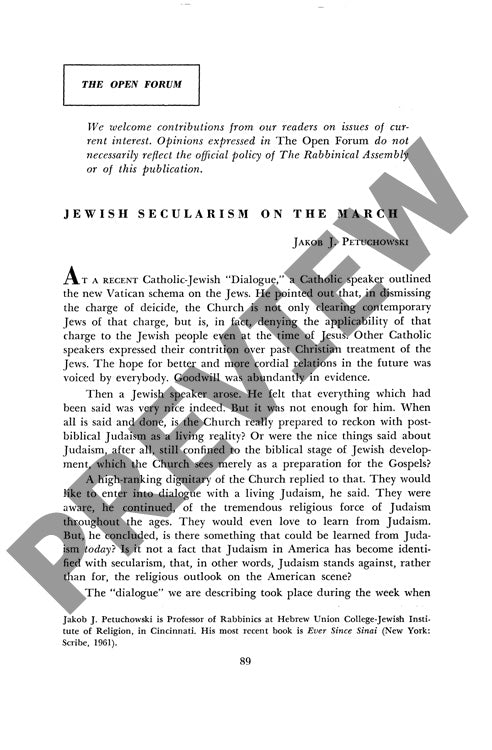Jewish Secularism on the March
Couldn't load pickup availability
A stark paradox emerged in 1960s American Jewish organizational life: while Jewish groups eagerly pursued interfaith dialogue with Christian churches, they simultaneously championed aggressive secularist positions on church-state separation and religious education. This ideological contradiction created lasting tensions in Catholic-Jewish relations and reshaped Jewish institutional advocacy. Analysis of organizational statements, legislative positions, and interfaith dialogue proceedings reveals how Jewish defense agencies and religious bodies increasingly adopted secularist stances that undermined traditional Jewish religious interests, particularly regarding aid to religious schools and faith expression in public spaces. The penetration of secularist ideology into synagogal and communal organizations has fundamentally altered how Judaism is represented in public discourse, inadvertently generating what amounts to a new form of religious anti-Semitism - with Christian dialogue partners viewing Jewish organizations as secularist opponents rather than religious allies. These findings demonstrate the urgent need to distinguish between authentic Jewish religious positions and secularist advocacy, as current organizational representation effectively betrays core Jewish religious principles and communal interests. The research draws on extensive examination of Catholic-Jewish dialogues and Jewish organizational responses to educational aid legislation throughout the 1960s to document this transformative shift in American Jewish institutional identity.

More Information
-
Physical Description
-
Publication Information
Published 1965
ISBN
-
Publication Credits
Jakob Petuchowski

